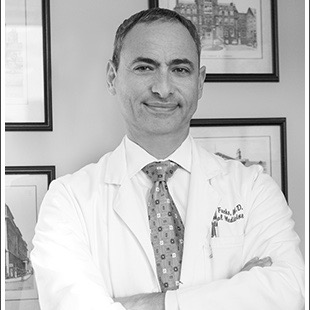My regular readers have been following the controversy about prostate cancer screening for some time. The controversy boils down to the following question. Should healthy men be routinely tested for prostate cancer? The most recent chapter in the controversy was written last year when the ” target=”_blank”>American College of Physicians released guidance statements that crystallize their recommendations.
Guidance Statement 1: ACP recommends that clinicians inform men between the age of 50 and 69 years about the limited potential benefits and substantial harms of screening for prostate cancer. ACP recommends that clinicians base the decision to screen for prostate cancer using the prostate-specific antigen test on the risk for prostate cancer, a discussion of the benefits and harms of screening, the patient's general health and life expectancy, and patient preferences. ACP recommends that clinicians should not screen for prostate cancer using the prostate-specific antigen test in patients who do not express a clear preference for screening.
Guidance Statement 2: ACP recommends that clinicians should not screen for prostate cancer using the prostate-specific antigen test in average-risk men under the age of 50 years, men over the age of 69 years, or men with a life expectancy of less than 10 to 15 years.
I find this very helpful, and it will help guide my conversations with men who are 50 to 69. It incorporates our current understanding while acknowledging that patients have unique values, anxieties, and preferences that should inform their care. If you’re a man between 50 and 69 give Guidance Statement 1 a close reading and tell your doctor what you think. If you love a man of that age, send him this post.
Learn more:
” target=”_blank”>Doctors group questions prostate cancer screening (Reuters)
Some of my previous posts about prostate cancer:
” target=”_blank”>Why I Won’t Have a PSA Test When I Turn 50
Tangential Miscellany
The images and stories from Boston are terrifying and heartbreaking. I believe there is a fascinating story to be written about the medical aspects of the minutes, hours, and days after the explosions. I hope we eventually read that story. By all accounts the first responders, the emergency department staffs, and the surgical teams did extraordinary work very quickly. The newspaper stories suggest that many of the wounded have survived life-threatening injuries because of the fast and organized work of many dedicated professionals. I know that all of you join me in wishing physical and emotional recovery to the injured, calm and focus to the medical teams, and deep condolences to the bereaved.
Did you enjoy this article?
You'll love our roundtable.
Editor's Picks



What Ever Happened to the LA Times?

Who Are the Jews On Joe Biden’s Cabinet?



















 More news and opinions than at a Shabbat dinner, right in your inbox.
More news and opinions than at a Shabbat dinner, right in your inbox.